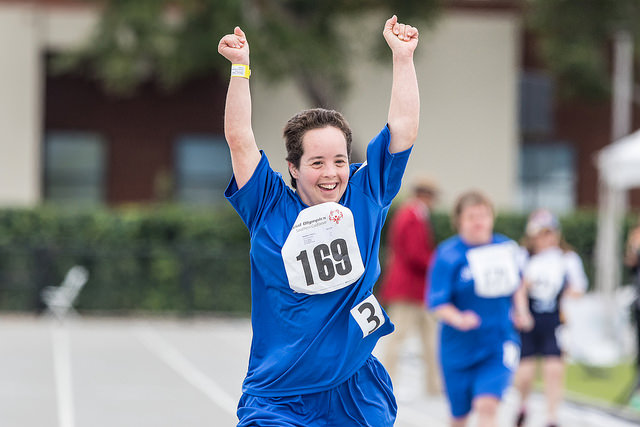Special Olympics Southern California just hosted its Summer Games June 11-12, using Cal State Long Beach as its venue for the 19th year in a row.
Special Olympics is hosted in over 170 countries and has 4.5 million athlete participants across the globe.
Every state has its own officially recognized Special Olympics, except for California, which has events split between Northern and Southern California. The Southern California region extends all the way from the hills of San Luis Obispo to our southernmost desert, and the area’s Summer Games have been hosted on the CSULB campus since 1998.
Over 26,000 athletes competed in the games this weekend, and more than 2000 volunteers contributed in any way, from food donations to health services as well as providing cheers of support at the events.
There are more than 12 track and field events comprising the olympics, as well as games in aquatics, athletics, basketball, bocce and gymnastics.
Athletes are divided based upon their skill ability.
“[That way] each athlete is actually competing against athletes that are at their same level,” said Communications Director Brian Szczerbinski. “So it’s more equal and fair competition for people.”
There’s a family pavilion for people who have family members with intellectual disabilities, and even a young athlete’s demonstration.
“You can watch athletes from ages 2-8 competing in sports, a lot of them for the very first time,” Szczerbinski said. “[It] helps with their development, hand-eye coordination and general growth.”
Competitors are welcomed to visit the “Help the Athletes Village,” which provides free health screenings to the athletes in every field from dental to vision, podiatry, nutrition and physical therapy. Often times athletes walk out with a new pair of shoes or glasses.
The Special Olympics is the largest sports organization in the world and has had a huge impact on the intellectually disabled community.
“We provide an outlet for them where they are accepted and are included, where they can be themselves and have a social interaction,” Szczerbinski said. “[Interactions] that I think you and I probably take for granted, [like] having friends.”
Before Special Olympics there were few outlets for the intellectually disabled.
“They would go home. There wasn’t a program, there wasn’t a club that they could sign up where they could feel included, and a part of,” Szczerbinski said. “That’s really what we provide, we provide that avenue for them where they can be themselves and grow when given an opportunity, and through that it provides them with the confidence and that ability to go work a job.”
According to Szczerbinski, Special Olympic athletes are twice as likely to have a job than other people with intellectual disabilities, partially because of the skill sets they get by participating in these events.
“Working with our athletes just really changes your perception on life,” Szczerbinski said. “Most things for them can be a lot more difficult than you and I, just even getting up in the morning, getting ready or getting to the location they want to get to, but they are some of the happiest people that I have ever met or you could ever meet and they don’t really let obstacles get in there way.”
Szczerbinski spoke of an athlete that participated in and completed the 100 meter dash, despite limited mobility in his left leg.
“[He was] going as fast and hard as he could,” Szczerbinski said. “Because he loved competing and sports and just being out there on the field, being in that nature where he’s accepted and included and he’s trying to do his best.”
Of course, Special Olympics doesn’t just have a positive effect on its athletes, but the community too.
“People are more willing to be accepting of people with intellectual disabilities,” Szczerbinski said. “Just because it takes someone a little longer to get to that point, they’re going to be their to support them get to that because they can accomplish it when given an opportunity.”
About 1200 people attended the free event last weekend that had 6 sports venues including a basketball area with games and live entertainment.
“When people are out there the games really do kind of open their hearts and minds,” Szczerbinski said. [It] changes their lives.”




